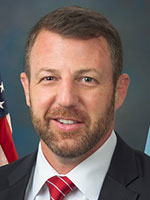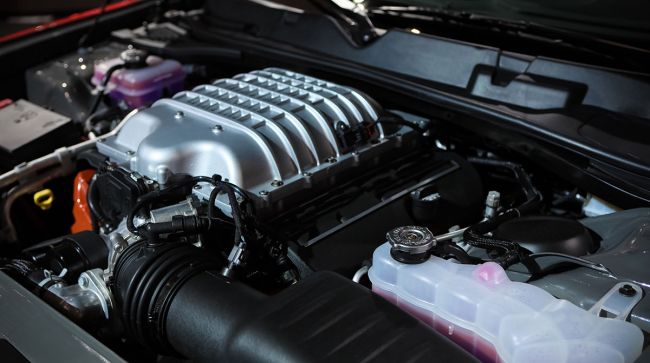The measure would restrict EPA from issuing certain waivers that would ban the sale or use of new motor vehicles equipped with internal combustion engines. (P_Wei/Getty Images)
A panel in the House recently approved a bill that would block efforts meant to prevent the sale of internal combustion engines.
The Preserving Choice in Vehicle Purchases Act, sponsored by Rep. John Joyce (R-Pa.), was backed by the Energy and Commerce Committee on July 27. Specifically, the measure would restrict the Environmental Protection Agency from issuing certain waivers that would ban the sale or use of new motor vehicles equipped with internal combustion engines. This would include commercial vehicles.
Sponsors explained they aim to ensure efficiency of the supply chain, preserve the integrity of consumer choice and maintain competition in the marketplace. They also are responding to efforts by California officials that would ban the sale of vehicles with internal combustion engines. Certain federal waivers are required for California’s agencies to proceed with their plan.
House Republican leaders have yet to schedule the bill’s floor consideration. The House and Senate resume legislative business after Labor Day.

Joyce
“California regulators shouldn’t have the power to determine what vehicles are sold to families in Pennsylvania,” Joyce said shortly after the bill’s approval. “One state should not be able to set national policy, and Americans should not be forced into making purchases they are unable to afford. I’m proud to see the Preserving Choice in Vehicle Purchases Act pass through the Energy and Commerce Committee and look forward to its passage in the House.”
Rep. Bob Latta (R-Ohio), a senior member of the committee, endorses the legislation.
“The federal government should not be picking winners and losers that determine which kind of cars Americans drive — whether that’s a gas and diesel car or an electric vehicle,” Latta said. “Yet, if the EPA grants California’s waiver request to ban internal combustion engine vehicles, Americans across the country will lose the ability to choose the vehicle that works best for them and their families.
The federal government should not be picking winners and losers that determine which kind off cars Americans drive.
Rep. Bob Latta (R-Ohio)
Image
“This is an issue of preserving the rights of the American consumer and allowing free markets to flourish.”
On the other side of the Capitol, Sen. Markwayne Mullin (R-Okla.) has sponsored a companion version of the bill.

Mullin
“California’s waivers are not about clean energy, they are about control,” Mullin said. “Democrats want to control every aspect of Americans’ lives — including what car they drive. If it were about clean energy, banning tailpipe emissions in favor of electric vehicles that strain an unstable grid is not the solution.”
Said Sen. Roger Marshall (R-Kan.), a co-sponsor: “A failing state like California, whose economy is in the gutter, has crime-filled cities, and people fleeing in record numbers, should not be advising policies for anyone, especially Kansans. It’s just that simple.”
American Trucking Associations endorses the legislation.
“ATA believes we must set national, achievable and realistic targets and timelines along the way to our shared goal of zero emissions. Those efforts must be made through a lens of technology neutrality, allowing innovation to provide a wide range of solutions that meet the diverse needs of the trucking industry,” said ATA Executive Vice President of Advocacy Bill Sullivan. “To that end, we thank Sen. Mullin for calling attention to the unachievable timelines being proposed by California.

Host Michael Freeze clarifies the differences between predictive and preventive maintenance. He gives fresh commentary on everything from how enhanced connectivity boosts your preventive maintenance plans to what predictive possibilities AI can offer your shop. Tune in above or by going to RoadSigns.ttnews.com.
“Setting a patchwork of regulations will disrupt the nation’s supply chain and force motor carriers to purchase costly, early-stage equipment and operate it in an environment with insufficient infrastructure support.”
Todd Spencer, president of the Owner-Operator Independent Drivers Association, said in a statement: “California should not be setting policy for America — that is the responsibility of Congress. It’s no surprise we’re seeing small-business truckers leaving the state in droves for opportunities elsewhere.
“Vehicle reliability and affordability are top priorities for OOIDA members. We have yet to see proof that electric commercial motor vehicles are a realistic option for trucking businesses, especially small-business truckers, considering the price tag and lack of charging infrastructure.”







